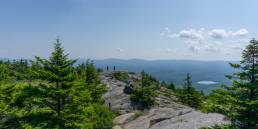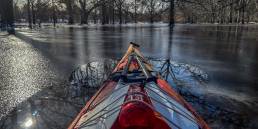Connecticut Residents Should Vote “Yes” On Question 2
Over the past few years, the debate over public lands and conservation has been a national political flash point. The reductions of Bears Ears and Grand Staircase–Escalante National Monuments, the reopening of mining in the Boundary Waters, and attacks on pro-environmental policies illustrate the attitude current officials have toward conservation. It’s a grim picture.
But, there is a chance for some good news. This November, protecting public lands at the local level has made it onto the ballot.
Protecting state-owned land in Connecticut is of critical importance. It preserves our heritage, it protects our natural resources and wildlife habitats, and it provides much-needed open space in one of the country’s most densely-populated states. If you’ve spent any time in the Nutmeg State, you know what I’m talking about. Names like Hammonasset Beach, Squantz Pond, and Sleeping Giant likely evoke pleasant memories of days spent outside. As much as grinders, white clam pizza, and the Hartford Whalers, they’re an inextricable part of the state’s culture.
However, if you can believe it, these places are essentially unprotected. They can be sold, traded, or given away without the public’s input, in the dead of night, over a handshake deal. It sounds insane, but it has actually happened before.
Come November 6th, though, it doesn’t have to happen again.

Understanding Question 2
“Question 2” is simple. Essentially, it asks if the state’s constitution should be amended to protect these places. A “yes” vote would mean two things. One, the transference of state-owned land would need to be subjected to a public forum. Secondly, any such transference would require a two-thirds majority vote by the state’s legislature. While it seems pretty straightforward, it’s not entirely unprecedented, either. Massachusetts and New York already have similar provisions in their respective constitutions, as does Maine.
Our neighboring states seem to realize that retaining public lands is significantly more valuable than their price tag would suggest. Forget about natural beauty and a clean water supply for a moment. Instead, looking at the purely pragmatic, bottom-line-numbers side, they make money. Fees collected at state parks, forests, and beaches generate revenue, and their operation and maintenance create jobs. Beyond that, dollars spent at businesses adjacent to these public lands offer a significant boost to those local economies. Meaning, again, public lands help generate more money and more jobs—two things Connecticut just happens to really, really need right now.
So, here’s what you can do: If you live in Connecticut, vote “yes” on Question 2 on November 6th to protect Connecticut’s state parks, forests, and beaches for generations to come. If you don’t live in Connecticut and are interested in safeguarding your state’s public lands, call up your local representative to see what’s what. Maybe you can get yourself a constitutional amendment of your own.
John Lepak
John Lepak is an art director, graphic designer, and weekend mountaineer. He hasn’t met a rock scramble he didn’t like, and spends his free time either in the mountains or obsessively cooking Mexican food. When John isn’t pushing pixels, crushing miles, or making the best carnitas caseras you’ve ever tasted, you can find him living the dream in the Connecticut woods with his family. Follow him at @jhlepak.
Related Posts
April 2, 2024
10 Tips for Mountain Biking Etiquette During Mud Season
One rough spring could ruin the…




